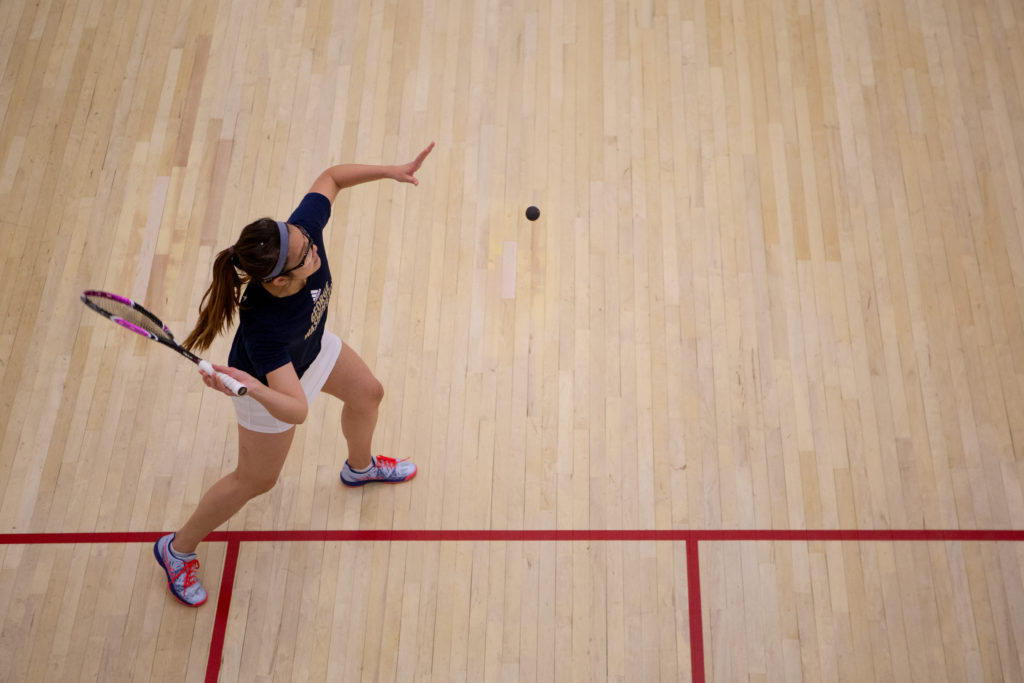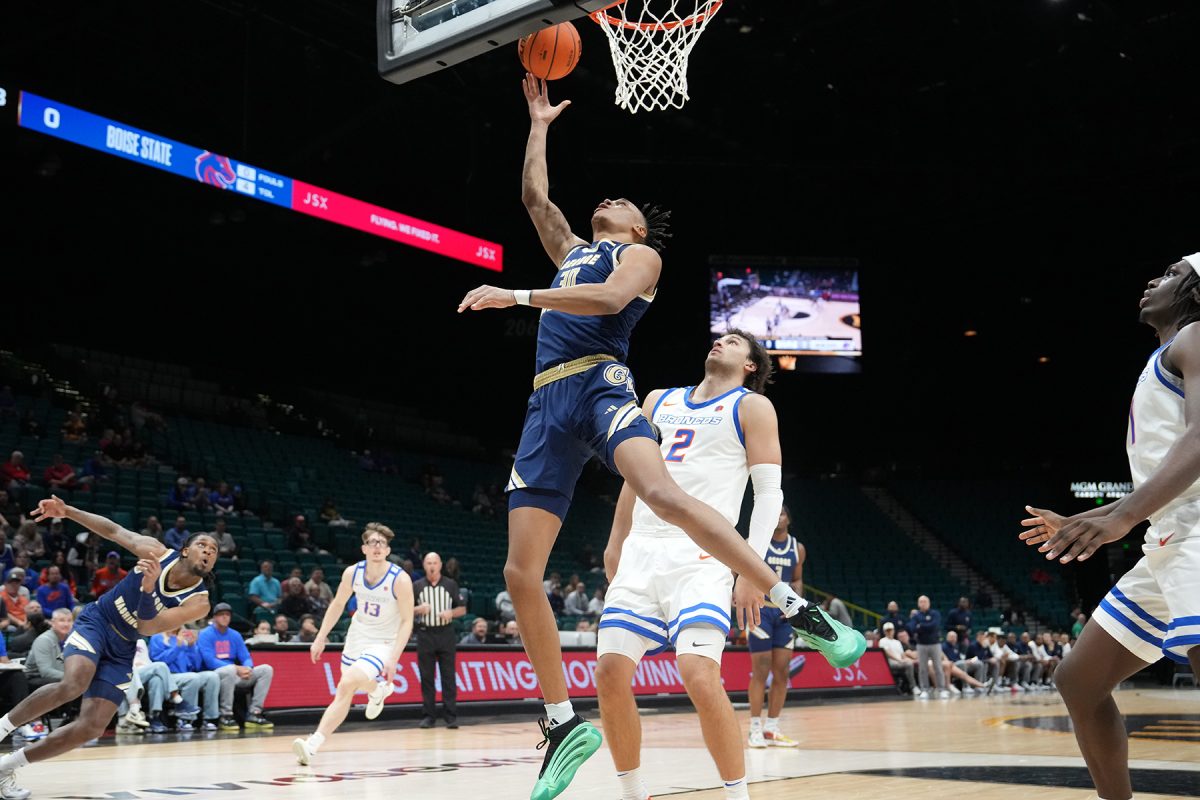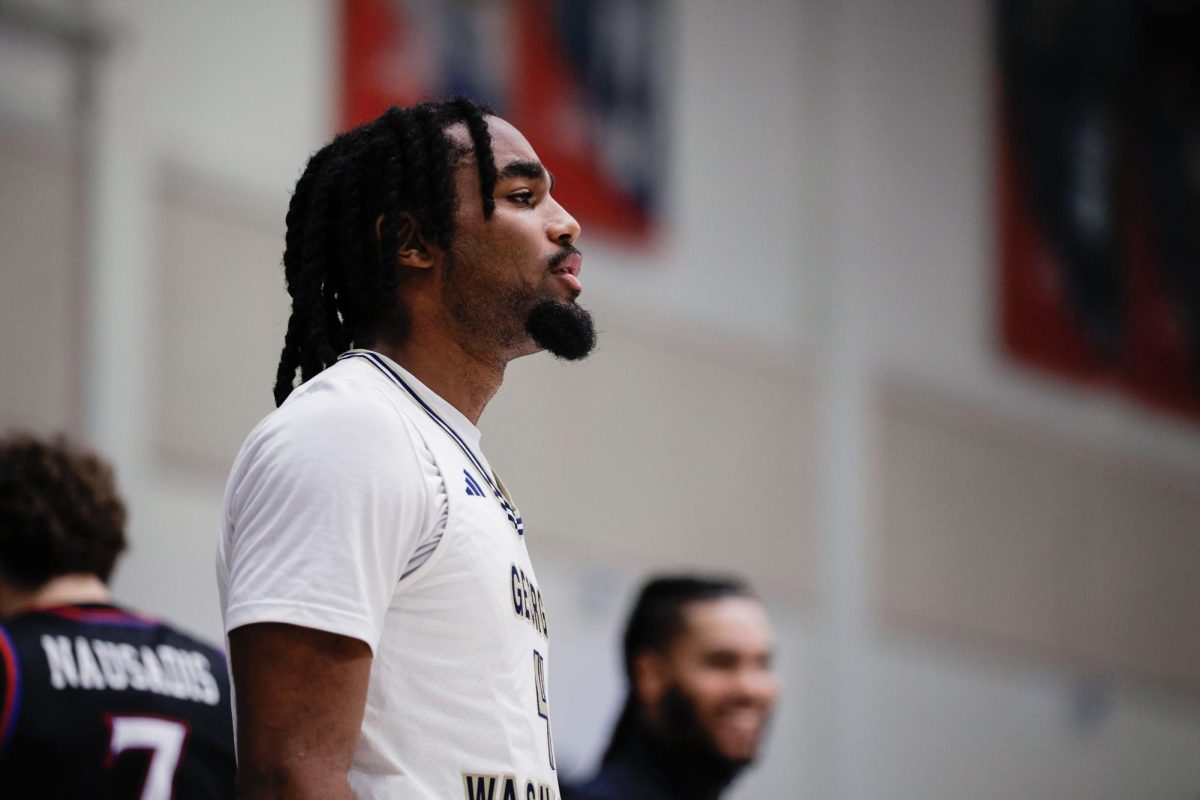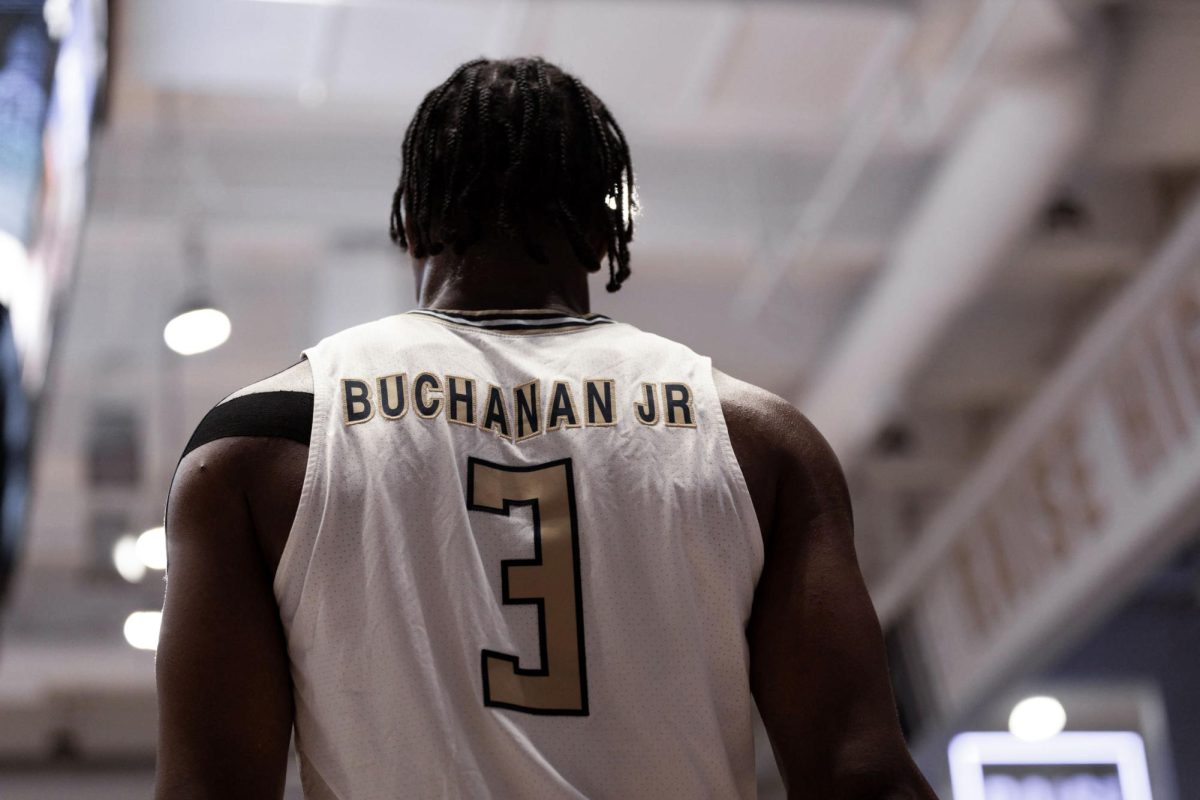Men’s and women’s squash alumni are urging the University to reconsider its decision to terminate both programs at the end of the 2020-21 season.
The group penned an open letter to officials and launched a petition Monday asking to hold a “constructive dialogue” with alumni about the teams’ eliminations. The letter, addressed to the Board of Trustees chair, University President Thomas LeBlanc and Athletic Director Tanya Vogel, detailed both programs’ history with GW and past successes as reasons for keeping the varsity teams.
“The squash teams are firmly rooted in GWU’s history and shelving them diminishes the efforts of all those who poured their hearts into the establishment and successes of both,” the letter states.
More than 1,700 people have signed the petition as of Friday morning.
Alumni called for greater transparency behind the University’s financial decision-making in the letter, saying they “wholeheartedly reject” that squash poses a financial burden on GW. The combined squash budget clocks in at about $400,000 annually, compared to $31 million for the athletic department, according to the letter.
“GWU’s announcements regarding its budgeting shortfalls as a result of COVID-19 have been vague and inconsistent, compounding the shock of receiving a form email detailing the athletic cuts,” the letter states.
Athletic department spokesman Brian Sereno declined to comment on the letter and petition, saying Vogel “shared a response with our squash community” Tuesday.
In its announcement, officials said eliminated varsity teams could continue as club sports if there is student interest and financial support.
Mallory Ward, a 2010 graduate, urged her followers in an Instagram post to sign the petition.
“It’s also my absolute favorite thing I’ve ever done in life, made better by the amazing people I got to play it with,” Ward said. “GW recently decided to cut the men’s and women’s varsity programs, and I don’t have the words for what a mistake that is.”
The open letter states that the programs demonstrate GW’s goal to increase diversity by recruiting student-athletes from North and South America, Europe, Africa, Asia and Oceania. The men’s and women’s teams included seven and four international students, respectively, last season.
Anna Gabriela Porras, a 2016 graduate and four-time All-American who holds the most career wins on the women’s side, said the team’s international presence benefits recruiting efforts for squash and other programs.
“Both myself, Adriana Calderon and my sister, all of whom are from Colombia and were part of the GW Squash program at the time, met with top international Colombian recruit Camilia Tapias, who later on joined the women’s basketball team later in 2014,” Porras said.
She added that playing squash at GW was “one of the best experiences” of her life and gave her the opportunity to study in the United States, pursue a career as a civil engineer and meet her husband.
Lauren Lowe, a 2012 graduate, said squash was the reason she landed at GW, and she learned how to communicate, lead and be a competitor at a high level on the squad.
“Squash is what brought me to GW in the first place,” Lowe said. “My closest friends, family really, were my fellow teammates and I couldn’t imagine my time at the school without them – they made GW into a community.”
Nicolas Valderrama, a 2017 graduate, said losing both programs will be a “tremendous” loss for GW. He said student-athletes learned skills like discipline and commitment through the program and received mentorship and networking opportunities from alumni.
“A GW squash alumnus helped me get my first ever legal internship opportunity during college,” Valderrama said. “I’m now one year away from finishing law school, so that internship opportunity really marked the beginning of what has become my professional career.”
2019-graduate Brooke Feldman said transitioning the program to a club team would hurt its level of national success. Without varsity status, Feldman said the programs would struggle to recruit top players, and a club team would go without resources like leadership programs and athletic events provided by the athletic department.
“Years of hard work went in to continue building the program just as my fellow alumni did before me,” Feldman said. “Our program always went in the upward direction, and that is where it would continue going if we weren’t getting eliminated.”
GW isn’t the first school to drop its squash programs – Brown eliminated men’s and women’s squash in May and Stanford cut its women’s squash program last month.
The College Squash Association said in a release it was disappointed by the University’s decision, shared the petition and urged readers to sign it.
“The CSA is disappointed with this news and is interested in assisting efforts to convince the George Washington administration to reconsider its decision,” the release said.





